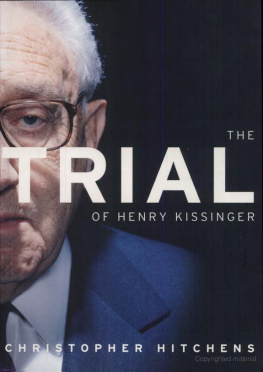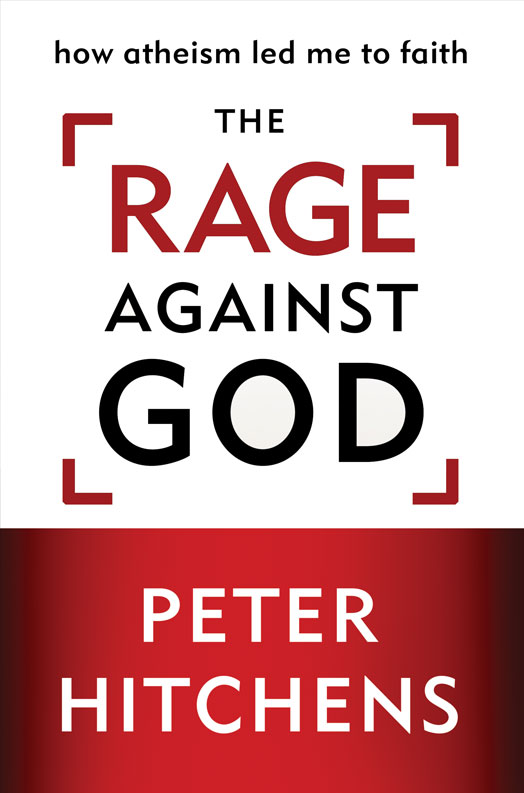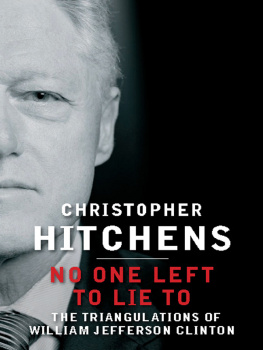
The Trial Of Henry Kissinger
ALSO BY CHRISTOPHER HITCHENS
Prepared for the Worst: Selected Essays and Minority Reports The Elgin Marbles: Should they be returned to Greece? Hostage to History: Cyprus from the Ottomans to Kissinger
Blaming the Victims (edited with Edward Said) James Callaghan: The Road to Number Ten (with Peter Kellner)
Karl Marx and the Paris Commune
The Monarchy: A Critique of Britain's Favourite Fetish Blood, Class and Nostalgia: Anglo-American Ironies
For the Sake of Argument: Essays and Minority Reports
International Territory: The United Nations 1945-95 (photographs by Adam Bartos) The Missionary Position: Mother Teresa in Theory and Practice When the Borders Bleed: The Struggle of the Kurds (photographs by Ed Kashi) No One Left to Lie To: The Values of the Worst Family Unacknowledged Legislation: Writers in the Public Sphere
THE TRIAL OF HENRY KISSINGER
CHRISTOPHER HITCHENS
VERSO
London New York
First published by Verso 2001
Christopher Hitchens 2001
All rights reserved
The moral rights of the author have been asserted
- Publisher: Verso (June 17, 2002)
- Language: English
- ISBN-10: 1859843980
- ISBN-13: 9781859843987
UK: 6 Meard Street, London W1F OEG USA: 180 Varick Street, New York, NY 10014-4606
Verso is the imprint of New Left Books www.versobooks.com ISBN 1-85984-631-9
British Library Cataloguing in Publication Data
A catalogue record for this book is available from the British Library Library of Congress Cataloging-in-Publication Data A catalog record for this book is available from the Library of Congress
Typeset by M Rules Printed by R. R. Donnelley & Sons, USA For the brave victims of Henry Kissinger,
whose example will easily outlive him, and his "reputation."
And for Joseph Heller, who saw it early and saw it whole.
In Gold's conservative opinion, Kissinger would not be recalled in history as aBismarck, Metternich or Castlereagh but as an odious schlump who made wargladly. {Good as Gold, 1976)
CONTENTS
PREFACE
INTRODUCTION
CURTAIN-RAISER: THE SECRET OF '68
INDOCHINA
A SAMPLE OF CASES: KISSINGER'S WAR CRIMES IN INDOCHINA BANGLADESH: ONE GENOCIDE, ONE COUP AND ONE ASSASSINATION
CHILE
AN AFTERWORD ON CHILE
CYPRUS
EAST TIMOR
A "WET JOB" IN WASHINGTON
AFTERWORD: THE PROFIT MARGIN
LAW AND JUSTICE
APPENDIX I: A FRAGRANT FRAGMENT
APPENDIX II: THE DEMETRACOPOULOS LETTER
ACKNOWLEDGEMENTS
INDEX
PREFACE
IT WILL BECOME clear, and may as well be stated at the outset, that this book is written by a political opponent of Henry Kissinger. Nonetheless, I have found myself continually amazed at how much hostile and discreditable material I have felt compelled to omit. I am concerned only with those Kissingerian offenses that might or should form the basis of a legal prosecution: for war crimes, for crimes against humanity, and for offenses against common or customary or international law, including conspiracy to commit murder, kidnap and torture.
Thus, in my capacity as a political opponent I might have mentioned Kissinger's recruitment and betrayal of the Iraqi Kurds, who were falsely encouraged by him to take up arms against Saddam Hussein in 1974-75, and who were then abandoned to extermination on their hillsides when Saddam Hussein made a diplomatic deal with the Shah of Iran, and who were deliberately lied to as well as abandoned. The conclusions of the report by Congressman Otis Pike still make shocking reading, and reveal on Kissinger's part a callous indifference to human life and human rights. But they fall into the category of depraved realpolitik, and do not seem to have violated any known law.
In the same way, Kissinger's orchestration of political and military and diplomatic cover for apartheid in South Africa and the South African destabilization of Angola, with its appalling consequences, presents us with a morally repulsive record. Again, though, one is looking at a sordid period of Cold War and imperial history, and an exercise of irresponsible power, rather than an episode of organized crime. Additionally, one must take into account the institutional nature of this policy, which might in outline have been followed under any administration, national security advisor, or secretary of state.
Similar reservations can be held about Kissinger's chairmanship of the Presidential Commission on Central America in the early 1980s, which was staffed by Oliver North and which whitewashed death squad activity in the isthmus. Or about the political protection provided by Kissinger, while in office, for the Pahlavi dynasty in Iran and its machinery of torture and repression. The list, it is sobering to say, could be protracted very much further.
But it will not do to blame the whole exorbitant cruelty and cynicism of decades on one man.
(Occasionally one gets an intriguing glimpse, as when Kissinger urges President Ford not to receive the inconvenient Alexander Solzhenitsyn, while all the time he poses as Communism's most daring and principled foe.)
No, I have confined myself to the identifiable crimes that can and should be placed on a proper bill of indictment, whether the actions taken were in line with general "policy" or not.
These include:
The deliberate mass killing of civilian populations in Indochina.
Deliberate collusion in mass murder, and later in assassination, inBangladesh.
The personal suborning and planning of murder, of a senior constitutionalofficer in a democratic nation - Chile - with which the United States wasnot at war.
Personal involvement in a plan to murder the head of state in thedemocratic nation of Cyprus.
The incitement and enabling of genocide in East Timor.
Personal involvement in a plan to kidnap and murder a journalist living inWashington, DC.
The above allegations are not exhaustive. And some of them can only be constructed prima facie, since Mr. Kissinger - in what may also amount to a deliberate and premeditated obstruction of justice - has caused large tranches of evidence to be withheld or destroyed.
However, we now enter upon the age when the defense of "sovereign immunity" for state crimes has been held to be void. As I demonstrate below, Kissinger has understood this decisive change even if many of his critics have not. The Pinochet verdict in London, the splendid activism of the Spanish magistracy, and the verdicts of the International Tribunal at The Hague have destroyed the shield that immunized crimes committed under the justification of raison d'etat. There is now no reason why a warrant for the trial of Kissinger may not be issued, in any one of a number of jurisdictions, and why he may not be compelled to answer it. Indeed, and as I write, there are a number of jurisdictions where the law is at long last beginning to catch up with the evidence. And we have before us in any case the Nuremberg precedent, by which the United States solemnly undertook to be bound.
A failure to proceed will constitute a double or triple offense to justice. First, it will violate the essential and now uncontested principle that not even the most powerful are above the law. Second, it will suggest that prosecutions for war crimes and crimes against humanity are reserved for losers, or for minor despots in relatively negligible countries. This in turn will lead to the paltry politicization of what could have been a noble process, and to the justifiable suspicion of double standards.
Next page















